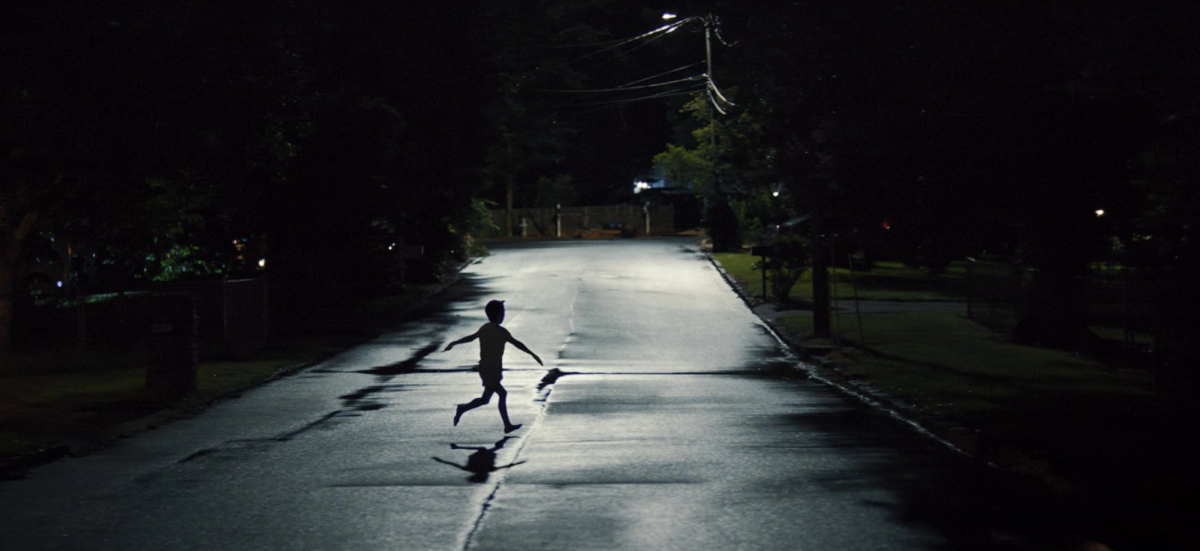
IMDB

At 2:17 a.m., all but one of 18 students from an elementary school class disappear, running off into the pitch black of night with their arms outstretched as if playing make-believe, never to be seen again.
This killer (literally) premise begins what many consider to be the best horror movie of the year. “Weapons” has garnered positive reviews from publications such as NPR, the New York Times and The Rolling Stone while earning a 94% fresh rating on Rotten Tomatoes. The film is inventive, entirely engaging, surprisingly humorous and, of course, chock-full of nerve-racking scares. It is also a movie that is best seen with as little prior knowledge as possible, meaning I will not attempt to overly summarize within this review.
Still, I struggle to fully understand the seemingly all-encompassing hype this movie has received. While “Weapons” does succeed in its entertainment value, both the story itself and its lackluster, half-baked attempts at a grander message leave much to be desired.
The film contains a multitude of positive elements. One of the most compelling is the way in which the filmmakers crafted “Weapons”. The film is broken up into several sections, each from the point of view of a different character, including the teacher of the class that disappeared, the father of a boy that disappeared, a police officer and more. These sections don’t necessarily appear chronologically, giving the audience a fuller picture of the few days the movie spans with each new perspective.
Through each character, the central mystery slowly pieces itself together in a way that is fulfilling. In this way, none of the sections feel unnecessary, an impressive feat considering audiences see over five characters’ perspectives. However, the pacing and time spent on each varies wildly, leaving many of the actual answers to the last half hour of the film.
The cast of “Weapons” shines as one of the strongest pieces of the film. Julia Garner continues her stellar run this summer, following up her role in Marvel’s “The Fantastic Four: First Steps,” with this truly impressive lead performance, playing a multifaceted and morally grey primary protagonist. Another standout includes Benedict Wong, whose facial expressions and makeup create some of the most genuine thrills and chills of this holistically terrifying movie.
Finally, Cary Christopher makes a strong impression as the only child who doesn’t disappear, which ends up being key to both the emotional core and plot of “Weapons.” Christopher acts with an amount of nuance and intrigue that is shocking for someone of his age, and he almost entirely carries the final act.
Despite these definitively good aspects, I walked away from “Weapons” feeling unsatisfied, if not downright confused. The film is frustratingly vague in its deeper messaging, themes and overall point.
This complaint does beg the question: Does every film necessarily need a point? Do movies need to universally act as a metaphor for some larger real world issue? No. I truly feel that art and entertainment can exist purely for the sake of being art and entertainment.
However, “Weapons” attempts to toe the line too closely, seemingly attempting to be both fun and well-crafted entertainment while also hinting at some sort of larger message about society today. The film lands, somewhat frustratingly, on neither side.
Some scenes, including a dream sequence that features a giant floating gun, hint at a deeper thematic message, likely related to the all-too-relevant issue of school shootings. However, the film neither takes a stance nor fully fleshes out what it is attempting to indicate, leaving much to be desired. The ending of the central mystery itself feels both rushed and almost entirely random, disconnected from any attempt at coherent or consistent messaging.
I don’t like that I don’t like this movie. It received massive amounts of hype for good reason: It is objectively a fun, scary time with good acting and an inventive structure, something I hope to see used more in filmmaking. It also embodies a positive trend in the film industry of taking movies in the horror genre far more seriously than previous years (see the success of “The Substance,” any of Robert Eggers’ recent work or Jordan Peele’s entire filmography). However, at a fundamental level, I feel it missed the mark in a small but crucial way, one that couldn’t help but leave me asking: What was the point?